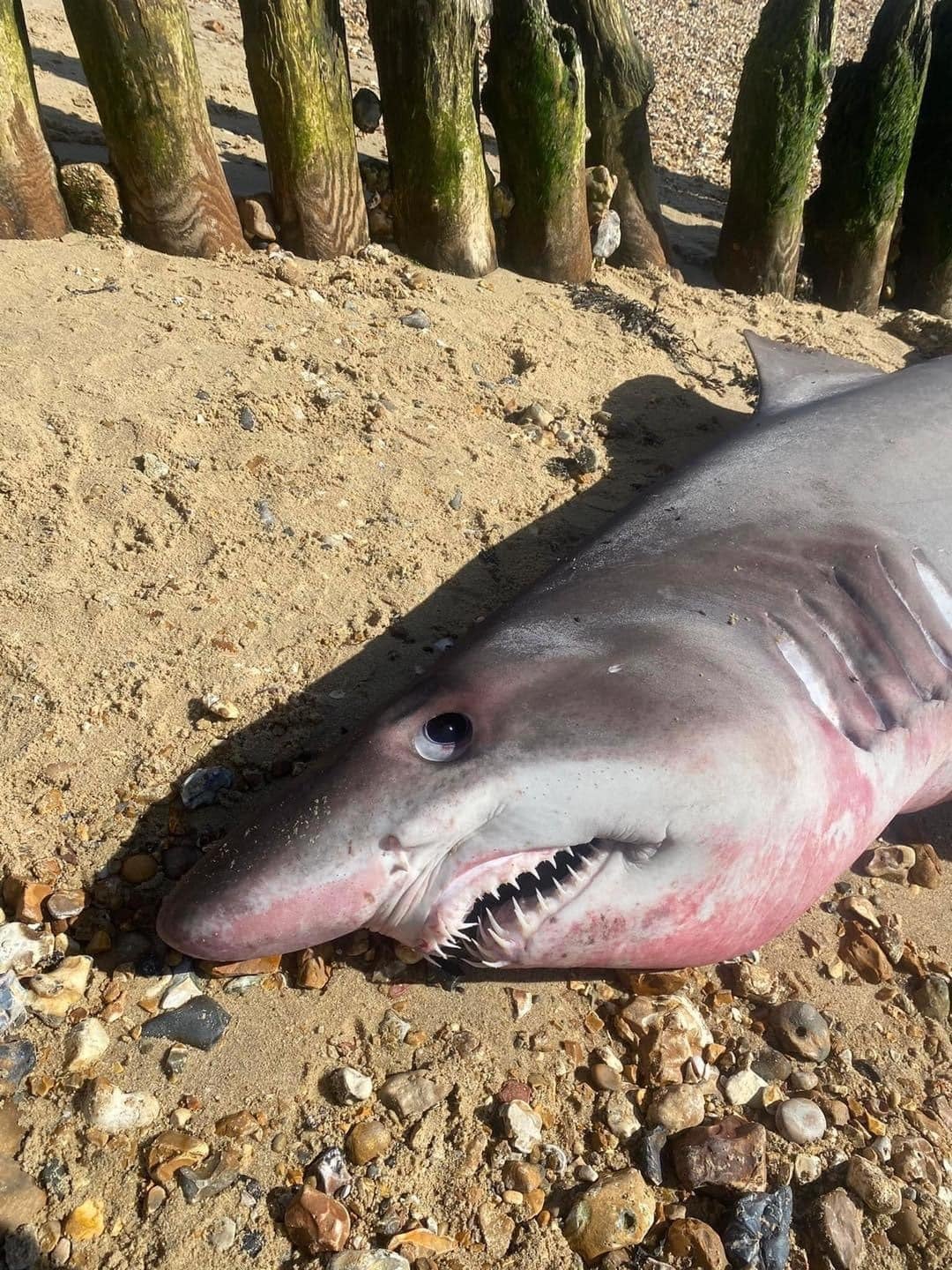‘Trophy hunters’ behead rare shark found on beach by TV historian
Trophy hunters removed the head, tail and fin from the shark before scientists could study it

Your support helps us to tell the story
From reproductive rights to climate change to Big Tech, The Independent is on the ground when the story is developing. Whether it's investigating the financials of Elon Musk's pro-Trump PAC or producing our latest documentary, 'The A Word', which shines a light on the American women fighting for reproductive rights, we know how important it is to parse out the facts from the messaging.
At such a critical moment in US history, we need reporters on the ground. Your donation allows us to keep sending journalists to speak to both sides of the story.
The Independent is trusted by Americans across the entire political spectrum. And unlike many other quality news outlets, we choose not to lock Americans out of our reporting and analysis with paywalls. We believe quality journalism should be available to everyone, paid for by those who can afford it.
Your support makes all the difference.A shark, thought to be rare to UK shores, had its head, tail and fin removed after it was found dead on a beach in Hampshire.
Locals found the shark while walking on Lepe beach, which was later discovered without its head and other parts.
Broadcaster and historian Dan Snow saw the shark washed ashore and tweeted that a biologist he knew said it was an “exceptionally rare visitor to these shores.”
Mr Snow tweeted about the find around 1am GMT from a road near the beach, after him and a group of friends had dragged the 8ft long shark to try and safeguard it, though trophy hunters had got to the shark just before them.
He said: “We have recovered a good chunk of it but some trophy-hunters got there just before us and they took the head and the dorsal fin on the tail.”
He added that this was “really disappointing” as the group had been asked to preserve the carcass by scientists as it was a “once-in-a-lifetime find in British waters”.

Mr Snow tweeted a plea to return the head temporarily so scientists could examine it, adding that the individual could then keep the head.
He told the BBC that researchers were hoping to see the teeth and the head as they thought the shark could be a smalltooth sand tiger shark, usually found in warmer waters.
He said it was a rare opportunity to for scientists, who wanted to study the shark “help us learn about our oceans and the ocean health and climate change”.
Professor in evolutionary biology at University of East Anglia, Dr Ben Garrod, said it was important for scientists to see the shark as it offered a “snapshot” of animals living in international waters.
“The oceans cover 71 or 72% of our planet, however it’s still incredibly mysterious,” he told the BBC.
“Every time we see a whale breaching or a shark washing up, this is like finding a Roman hoard or Viking daggers.”
He said the pecies was not typically seen on UK shores and an opportunity to study it could offer insight into feeding patterns and water temperatures, depending on the health of the shark prior to death.
The Zoological Society of London will be collecting the remains of the shark on Tuesday to study it.
Join our commenting forum
Join thought-provoking conversations, follow other Independent readers and see their replies
Comments